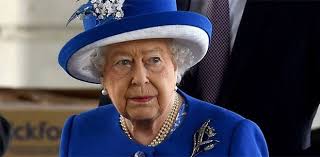The Queen has been Head of the Commonwealth since coming to the throne in 1952 and despite being next in line for the throne, Prince Charles is not guaranteed of the honour.
A statement on the Commonwealth Secretariat website states: “When the Queen dies or if she abdicates, her heir will not automatically become Head of the Commonwealth.
“It will be up to the Commonwealth heads of government to decide what they want to do about this symbolic role.” The week-long Commonwealth Heads of Government Meeting (CHOGM) began today and a decision about Prince Charles is expected on Friday.
The Commonwealth of Nations (formerly the British Commonwealth), also known as simply the Commonwealth, is an intergovernmental organization of 53 member states that are mostly former territories of the British Empire. The Commonwealth operates by intergovernmental consensus of the member states, organized through the Commonwealth Secretariat and non-governmental organizations, organized through the Commonwealth Foundation.
The Commonwealth dates back to the mid-20th century with the decolonisation of the British Empire through increased self-governance of its territories. It was formally constituted by the London Declaration in 1949, which established the member states as “free and equal”.
The symbol of this free association is Queen Elizabeth II who is the Head of the Commonwealth, and while there are over 31 republics and five monarchies who have a different monarch, the Queen is head of state and reigning monarch of 16 members of the Commonwealth, known as Commonwealth realms. The position of The Crown remains legally distinct from the position of monarch and the position of the Head of the Commonwealth. The Queen has since ceased to be the head of state or have any formal position in several nations of the Commonwealth including India, Pakistan, Sri Lanka, Malaysia and Singapore.
Member states have no legal obligation to one another. Instead, they are united by language, history, culture and their shared values of democracy, freedom of speech, human rights, and the rule of law. These values are enshrined in the Commonwealth Charter and promoted by the quadrennial Commonwealth Games. The Commonwealth covers more than 29,958,050 km2 (11,566,870 sq mi), equivalent to 20% of the world’s land area and spans all six inhabited continents. With an estimated population of 2.419 billion people, nearly a third of the world population, the Commonwealth in 2014 produced a nominal gross domestic product (GDP) of $10.45 trillion, representing 14% of the gross world product when measured nominally and 17% of the gross world product when measured in purchasing power parity (PPP).

 Football1 week ago
Football1 week ago
 Health & Fitness2 days ago
Health & Fitness2 days ago
 Featured5 days ago
Featured5 days ago
 Comments and Issues1 week ago
Comments and Issues1 week ago
 Education6 days ago
Education6 days ago
 Business6 days ago
Business6 days ago
 Crime6 days ago
Crime6 days ago
 Business5 days ago
Business5 days ago

